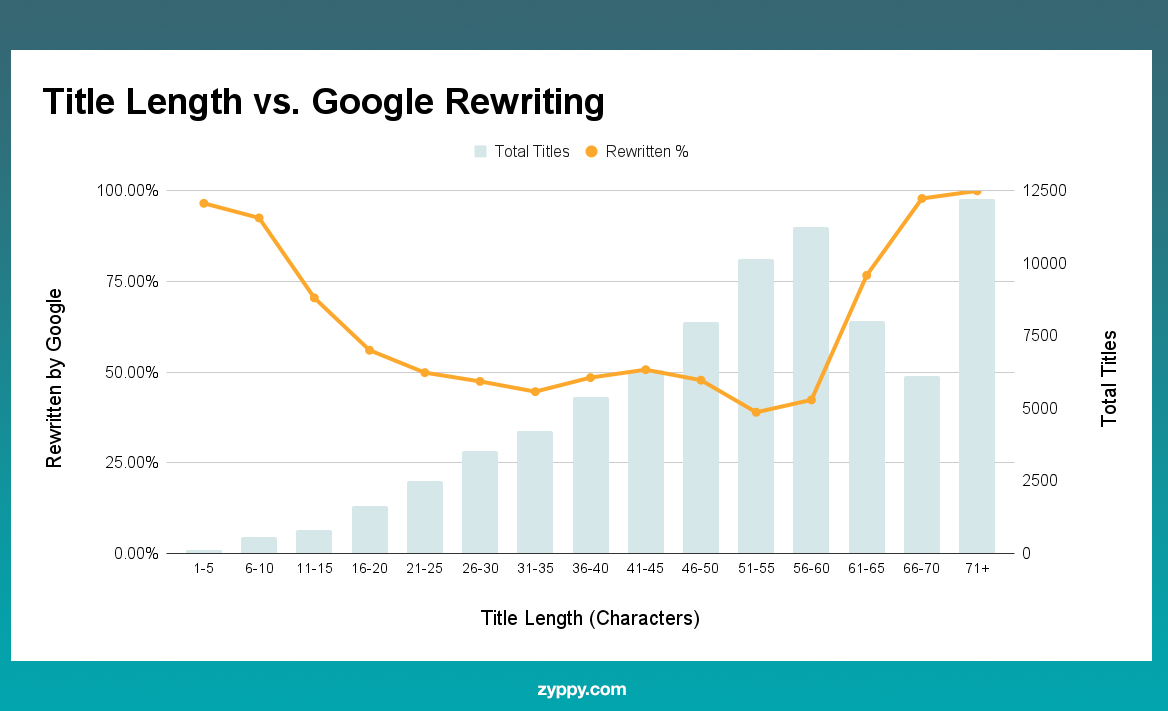SEO is a process by which you can optimize any and all web pages that currently fall within your ownership according to the demands of the search engine you want it listed on. A rather important aspect of SEO is coming up with a nice title for your page which can draw users in, and that is something that many SEO professionals spend quite a bit of time on since it can be the final determining factor when it comes to whether or not a user would be willing to click on a link.
Zyppy recently conducted a study, and the findings of this study are likely going to upset quite a few SEO professionals. That’s because this study revealed that Google’s algorithm ends up rewriting around 60% of the web page titles that it sees. This is usually done in an attempt to make the page title more relevant so you will only have to worry about this happening to your page title if you weren’t really doing a good job in the first place.
Any page title that exceeds or falls short of the 50-60 character range for ideal page titles according to Google’s algorithm has a 95% chance of getting changed. If your page title has more than 70 characters, it will almost certainly be changed due to the reason that the study showed that Google did so 99.99% of the time
With all of that having been said and now out of the way, it is important to note that if the title’s length fell into the ideal 50-60 character range, it was still changed around 40 percent of the time. That might have something or the other to do with you using brackets or title separators in your title, neither of which are things that Google appears to be all that big a fan of. Excessive keyword usage and gratuitous brand name drops in titles are likely also going to increase the chances that your title would be in some way altered.
Adhering to Google’s requirements can reduce the chances of this happening, but it’s clear that Google takes a fair bit of artistic license in this regard which some might not be happy about.
Read next: Google’s SafeSearch Info Gets a New Troubleshooting Section
Zyppy recently conducted a study, and the findings of this study are likely going to upset quite a few SEO professionals. That’s because this study revealed that Google’s algorithm ends up rewriting around 60% of the web page titles that it sees. This is usually done in an attempt to make the page title more relevant so you will only have to worry about this happening to your page title if you weren’t really doing a good job in the first place.
Any page title that exceeds or falls short of the 50-60 character range for ideal page titles according to Google’s algorithm has a 95% chance of getting changed. If your page title has more than 70 characters, it will almost certainly be changed due to the reason that the study showed that Google did so 99.99% of the time
With all of that having been said and now out of the way, it is important to note that if the title’s length fell into the ideal 50-60 character range, it was still changed around 40 percent of the time. That might have something or the other to do with you using brackets or title separators in your title, neither of which are things that Google appears to be all that big a fan of. Excessive keyword usage and gratuitous brand name drops in titles are likely also going to increase the chances that your title would be in some way altered.
Adhering to Google’s requirements can reduce the chances of this happening, but it’s clear that Google takes a fair bit of artistic license in this regard which some might not be happy about.
Read next: Google’s SafeSearch Info Gets a New Troubleshooting Section

